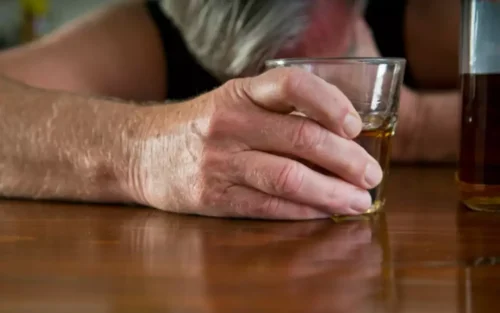
The two conditions can easily be distinguished, however, because in contrast to the alcohol-induced vacuolation, chloramphenicol-induced vacuolation is accompanied by the disappearance of virtually all later RBC precursors. In addition to differences in the quantity of alcohol consumed, inherited or acquired variations in an individual drinker’s biochemistry may account for these differences in susceptibility. You’ll get an email weekly with any new questions answered by this does alcohol thin blood doctor. Since you’re not logged in, check your email after you submit to confirm. Heavy alcohol use can lead to the development of alcohol dependence and addiction, making it challenging to cut down on or stop drinking despite the negative consequences.
- Your body breaks alcohol down into a chemical called acetaldehyde, which damages your DNA.
- Profound hypophosphatemia may cause the phosphate and ATP levels in the RBC’s to decline substantially.
- Alcohol might also slow down the rate at which your body breaks down and removes the blood-thinning drug.
- Similarly, studies of intoxicated laboratory animals demonstrated reduced elimination of bacteria by the monocyte-macrophage system.
How Do Platelets and Your Blood Work Anyway?
The acute effects of alcohol on the myocardium include a weakening of the heart’s ability to contract (negative inotropic effect). However, this exact mechanism may increase your risk of bleeding from strokes. Not only that, some people experience an increase even after one or two drinks because their body processes alcohol differently. There are too many variables to make a blanket statement that alcohol is good for your blood pressure. However, those already dealing with blood-pressure-related illnesses and heart conditions should only drink in moderation.
What is the effect of alcohol on blood pressure?

The production of all types of blood cells begins with undifferentiated precursor cells—so-called pluripotent stem cells—that can develop into whichever cell type is needed at that time. Although results related to levels of alcohol consumption and stroke events are less clear, some conclusions can be drawn. Approximately 1 to 2 drinks per day may have no effect on or lead to a slight reduction in stroke events; however, greater daily alcohol levels increase the risk for all stroke events and incident stroke types. In terms of stroke subtypes, compared with nondrinkers, current alcohol drinkers have an increased risk (~14 percent) for hemorrhagic stroke (Ronksley et al. 2011). This is due to the effect of alcohol on the coagulation process, which essentially makes the blood less sticky.
- Many people wonder whether alcohol has blood-thinning properties and how it may interact with blood thinners.
- And that’s on top of the toll that alcohol use can take on relationships, not to mention the potential for financial strain and legal troubles.
- Your immune system works to keep you as healthy as possible by fighting off foreign invaders, such as viruses, bacteria, and toxins.
- However, it’s never a good idea to use alcohol in place of your prescription blood thinners.
Mental health
- Alcohol can amplify the effects of blood thinners, potentially leading to excessive bleeding or prolonging bleeding time.
- Even minor injuries, such as scratches, can damage blood vessels and cause bleeding.
- The proportion of cardiomyopathy cases attributable to alcohol abuse has ranged from 23 to 40 percent (Piano and Phillips 2014).
- Other ethanol-induced changes may be related to enzymes that modulate protein synthesis and/or breakdown (e.g., ubiquitine-ligases).
When you’re injured, blood cells called platelets rush to the injury site. Platelets also release proteins called clotting factors that form a plug to close the hole. By following these precautions and guidelines, you can make informed decisions about drinking alcohol while on blood thinners.

Alcohol’s Effects on the Bone Marrow and on RBC Production

This is why you need to consult your doctor and take their informed advice about Alcoholics Anonymous drinking while on blood thinners seriously. Although alcohol is not a blood thinner, it can still have effects on the blood and its clotting factors. Contrary to popular belief, alcohol is not a blood thinner in the same way that medications like aspirin or warfarin are.
- Excessive alcohol consumption can have a negative impact on your health and increase the risk of bleeding.
- The effects of alcohol consumption on the blood are either short-term or long-term.
- Heavy alcohol use can lead to the development of alcohol dependence and addiction, making it challenging to cut down on or stop drinking despite the negative consequences.
- When your liver finishes that process, alcohol gets turned into water and carbon dioxide.
Lastly, he obtained graduate education in public health and business administration to contribute to national healthcare reform research and implementation. It’s not recommended that you start drinking alcohol if you don’t normally. Having the restraint to consume only moderate amounts of alcohol may be challenging for some individuals. They offer a number of benefits over warfarin, but they do have some disadvantages.
